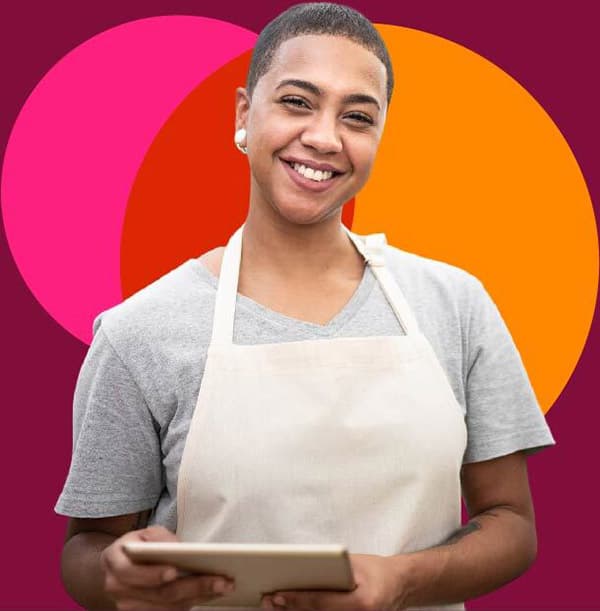Zipline sat down with Prof. Barbara Kahn of the University of Pennsylvania’s Wharton School to discuss the trends shaping retail. Prof. Kahn is the former director of Wharton’s Baker Retailing Center and the author of the new book, The Shopping Revolution.
Please note: This interview does not constitute an endorsement of Zipline’s products or services.
Read Part I: A New Framework for Retail Strategy and Part II: Building the Right Customer Experience
We all know Millennials and Gen Z – the digital natives – matter, but we don’t know how they’ll evolve over time. How, for instance, will their behavior change once they turn 30? Will life take over or will they still act the same way they do today?
Amazon, naturally. They’re forcing people to lower prices and play the commodity game.
Retailers took a long time to see the threat. They understand it now, but Amazon has been proceeding carefully for twenty years.
Watch the big boxes. They once put small mom-and-pops out of business by offering a large assortment at a cheap price. Now, however, online retailers offer an even larger assortment at a cheap price, and they offer more convenience. So, what edge do the big boxes have left?
Look at Borders, Circuit City, or Toys R’ Us. Online dominates brands like that unless they give customers a compelling reason to keep shopping.
Absolutely. If you’re going to commoditize your products, you’re not going to win. That’s why the top row of my matrix is to increase pleasure. The trick, of course, is to find something people truly value.
There are certainly parallels. In fact, CPG companies are even confronting some of the same threats.
Online players like Amazon are starting to build their own house brands, for instance. If the CPG products aren’t better and if they don’t maintain stronger brand relationships, people will simply switch to the lower-priced alternative. Some brands will survive and others won’t.
It’s certainly a trend. Target is investing online and Amazon is opening stores.
The ones who have done well thus far are the “Digitally Native Vertical Brands.” They integrate online and offline well because they came from the world of data, whereas the legacy companies didn’t. But these new brands also have far fewer stores, and we don’t know if they can scale successfully.
The other challenge with omnichannel is that you have to get data from one place to another. In practice, that means convincing people to use an app. Amazon has addressed this by making people use the app when they shop in their Amazon Go stores. When you’re done shopping, you just walk out. It’s novel, but novelty by itself doesn’t last. Amazon needs to make sure shoppers keep coming back.
It’s all about the notion of pop-ups. Pop-ups create buzz and drive word of mouth. They’re not meant to be high sales-per-square-foot. They’re built around the idea of engagement and brand building. That’s even true for those seasonal Halloween stores, like Spirit, that you see every fall.
The bottom line is that brands matter to people. You have to let customers know you’re alive and that your brand is strong, because, otherwise, you wind up playing the commodity game.
Many retail analysts think it’s the way of the future. If that’s true, it will have major implications for retailers.
Can you imagine if your house could not only tell when you’re about to run out of paper towels, but would order them automatically? That’s a very, very different customer journey.
There’s a quote that most people attribute to Jeff Bezos, which goes roughly like this: “People are always asking me what the future will look like. But a more interesting question is, ‘What’s not going to change? What will people always want?’”
For Amazon, it’s about low price and convenience. They really understand the value they provide to their customer and they’ve built their whole model around that.
It’s a simple idea, but a profound one.
——-
Order Prof. Kahn’s book, The Shopping Revolution

Recent Posts
Company News
Zippy is Officially Here!
Company News
Zipline Named a Finalist for the NRF VIP Awards!
Retail Communications
How Visionworks Brought Comms into Focus with Creative Hubs
Retail Communications
How L.L.Bean Made Store Communication Awesome
Retail Communications
🛒 How Grocery Stores Are Winning with Operational Excellence
Retail Communications
How Allbirds Keeps Employee Morale Flying High with Branded Internal Comms
Retail Execution
How Janie and Jack Streamlined Daily Check-Ins with Zipline
Retail Communications
How Uncle Giuseppe’s Boosted Store Execution
Company News
Zipline Recognized in Gartner® Hype Cycle™ Reports for 2024
Retail Communications
Summer Camp 2024 Award Winners!

June 26, 2024
November 20, 2024
October 18, 2024
October 8, 2024
October 7, 2024